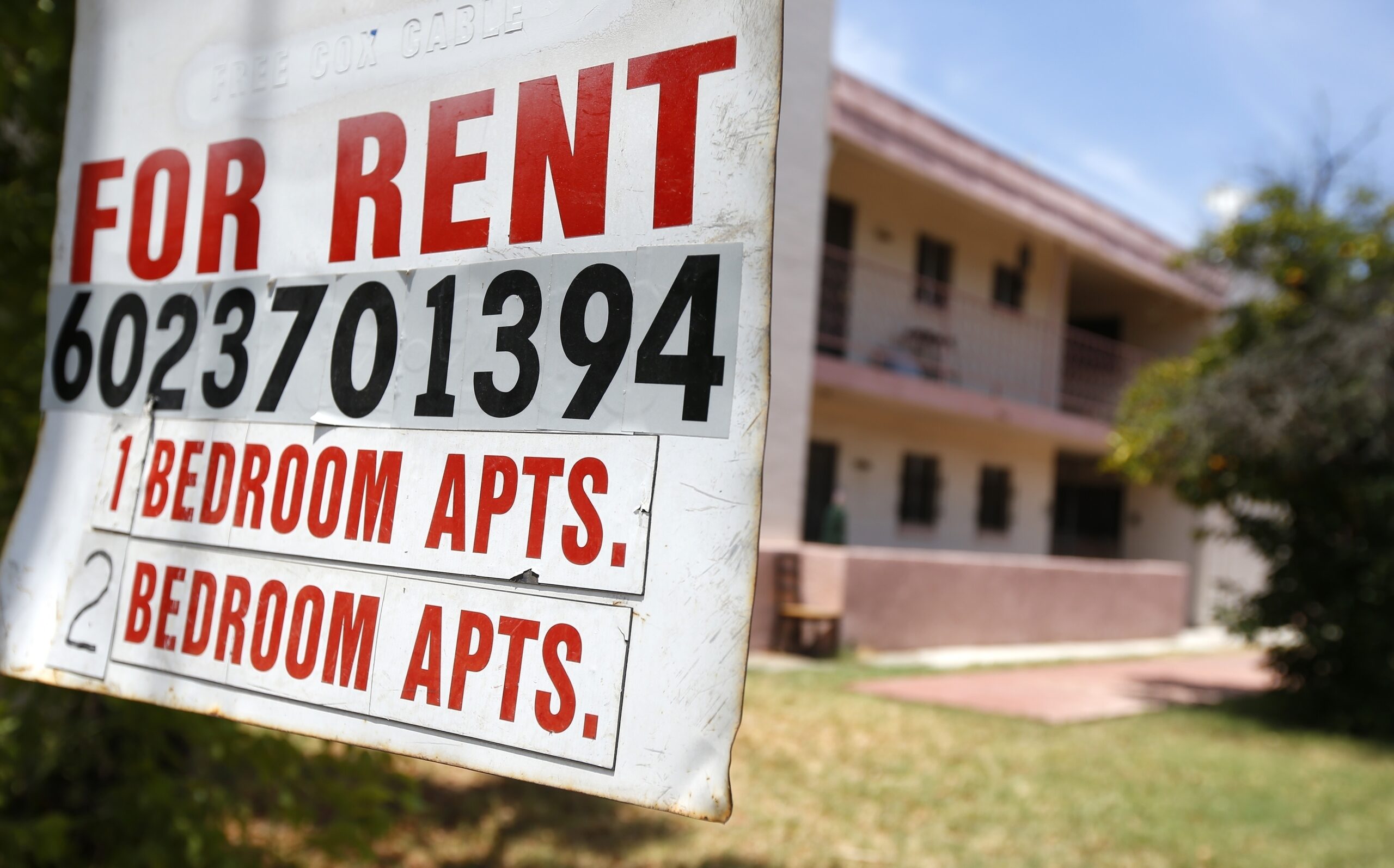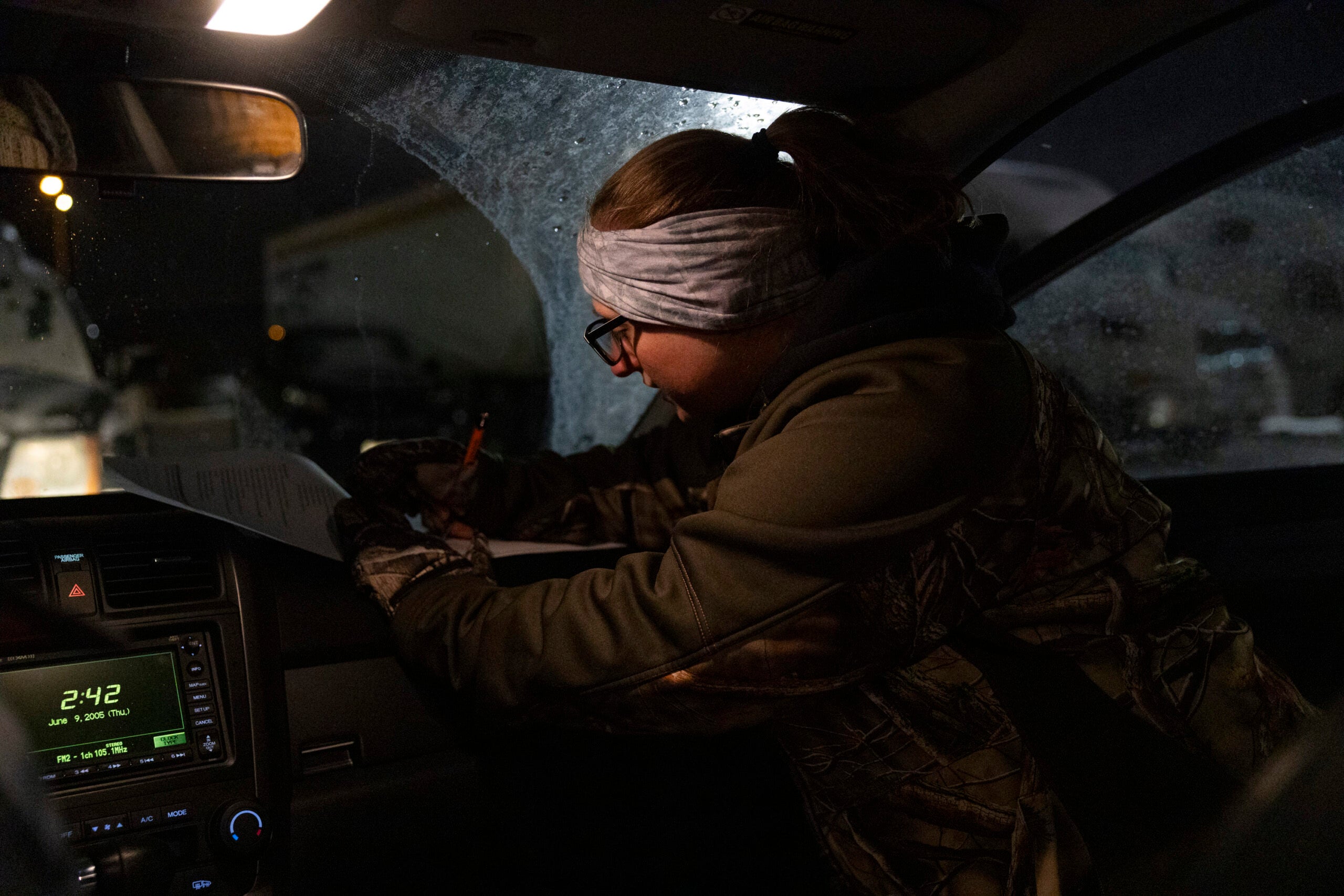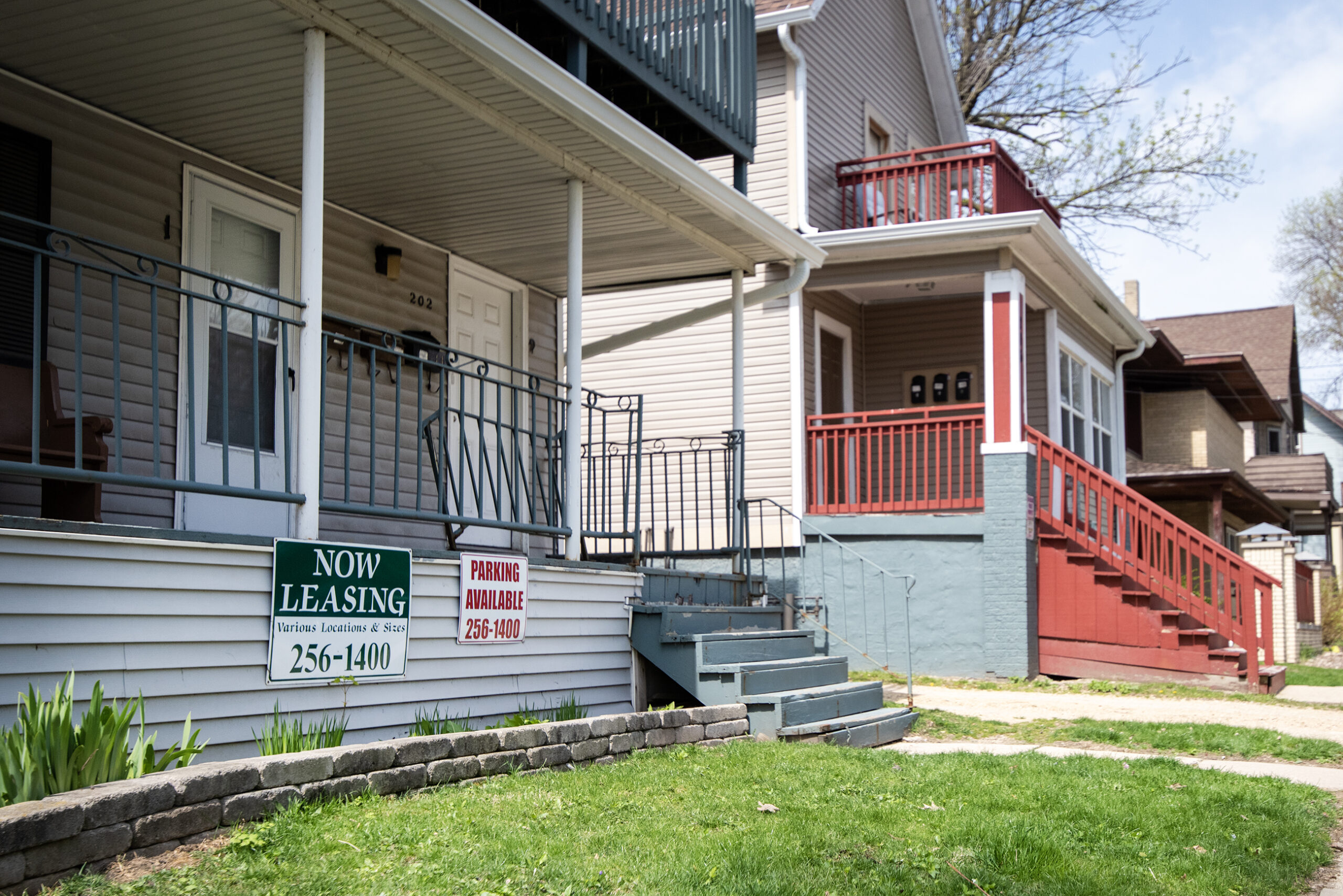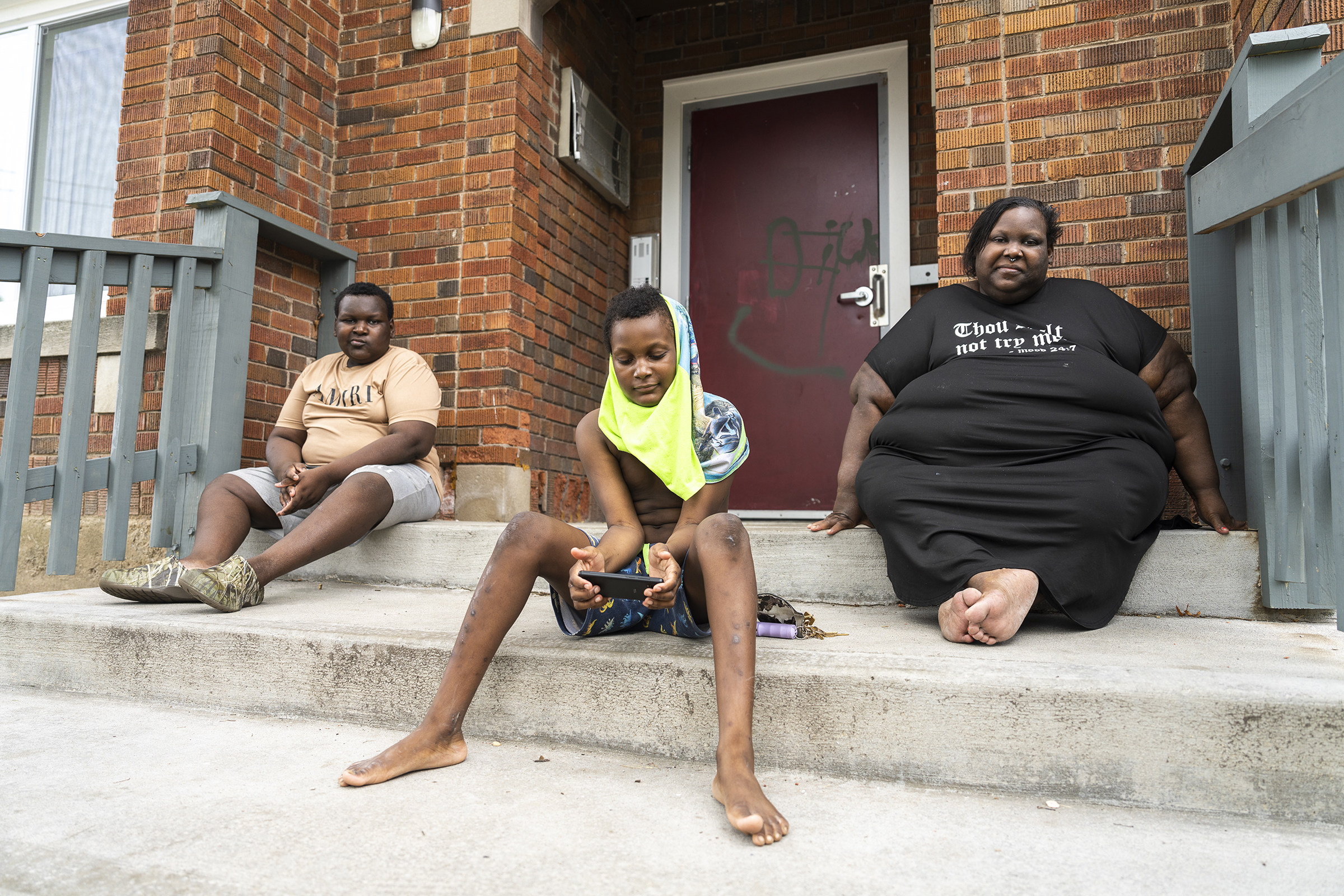Since this story published, the federal moratorium on residential evictions due to not paying rent because of the pandemic has been extended through Jan. 31, 2021.
This week, Gina Mahnke received a notice in the mail telling her she’ll be evicted from her home when the federal moratorium that has been protecting her is lifted at the end of the month.
Mahnke wasn’t surprised.
News with a little more humanity
WPR’s “Wisconsin Today” newsletter keeps you connected to the state you love without feeling overwhelmed. No paywall. No agenda. No corporate filter.
She rents a townhouse in Greendale for $1,225 a month, where she lives with her mother, 15-year-old daughter and 12-year-old nephew.
“There is nothing to do, we have nowhere to go,” Mahnke said. “I’ve just been waiting for answers that I’m never going to get.”
Before the pandemic, Mahnke was a full-time Uber driver, and made a good living. But she lost her job in March. Now she’s behind more than $5,000 in rent payments and late fees that have been added by her landlord.
“I had to wait a long time for my unemployment. Finally, I got it, and I was all caught up, and then the unemployment cut out again,” Mahnke said.
Mahnke reached out to WPR’s WHYsconsin asking what she can do if the moratorium is lifted. She’s one of millions of Americans who could be left without a place to stay after a short-term federal ban on evictions expires Dec. 31.
Financial services company Moody’s Analytics found that nearly 12 million renters will owe an average of $6,000 in back rent and utilities by January 2021, according to NPR. And there’s still no stimulus agreement in Congress.
Mahnke has been trying for three months to sign up for the Milwaukee Rental Assistance Program through the county’s Social Development Commission.
“I understand that they are completely backed up,” Mahnke said. “But I leave emails, voicemails and no one responds in no way, shape or form.”
She’s also been trying to get rent assistance through Community Advocates, another Milwaukee-based nonprofit. She’s waiting to find out if her application there has been processed.
“It’s just more waiting, and I don’t know if the answers will come,” Mahnke said.
Applications For Rental Assistance Skyrocket
In May, Gov. Tony Evers launched a $25 million Wisconsin Rental Assistance Program (WRAP) to help those unable to pay their rent. About $10 million of that went to Milwaukee County.
Deb Heffner, housing strategy director at Community Advocates, said that money helped many renters, but there are still others, like Mahnke, waiting for assistance.
Community Advocates has received more than 8,000 rental assistance applications and have responded to 3,500. Heffner said they’re working to respond to every application before the end of the year.
“Not knowing where you are going to live is clearly one of the scariest things a person can go through,” Heffner said. “Especially if they have had issues with unemployment. People want to stay in their homes, but if you don’t have the money to do so, you simply can’t pay.”
Mike Bare leads the Healthy Housing Initiative at Community Advocates. He said in addition to the federal moratorium being extended, a combination of housing interventions need to be established to keep people in their homes.
“I would like to see a moratorium that includes an opportunity for people to receive dollars to stay in their homes, but also includes reasonable protections for landlords,” Bare said. “It’s going to have a high price tag, but when you think about keeping people off the streets and out of shelters, it certainly makes sense when you’re in a pandemic to do that.”
Landlords Also Struggling
Chris Mokler heads the COVID-19 task force for the Wisconsin Apartment Association. He said the current coronavirus relief bill being debated in Congress includes $25 billion for rent relief, but as of Nov. 1, $37 billion was owed by renters. That number is now approaching $70 billion.
If the relief bill passes, it wouldn’t go into effect until late January, but it could include a one-month extension of the eviction moratorium, Mokler said.
“Of course, we have to wait and see,” Mokler said, adding that he hopes by the time the federal money flows to Wisconsin, Evers enacts a program similar to the WRAP program from earlier this year.
“The bank always gets their money, so the landlord has to do something, or they lose their property,” Mokler said. “If they let their tenant stay there, and they lose their property, then the tenant loses their property too.”
Lyn Bradley has owned eight properties in Milwaukee for eight years. She bought them from her parents, who live in Brookfield.
Bradley is a single-mother who lives in California. She said for the last nine months, she has barely slept, worrying about tenants not paying their rent.
Now, she’s in the process of selling all but one of her properties.
“With the eviction moratorium in place, I think it’s super unfair to have to carry the burden of having to pay someone else’s expenses,” Bradley said. “I have to pay water, insurance and property taxes. One of my main sources of income are my rental properties. I cannot afford to support people.”
Bradley said she understands the difficult position people are in, but she can’t support other families.
“I’m terrified because I don’t know what I’m going to do for money, but I can’t continue to hemorrhage money either,” Bradley said. “It puts a lot of people in a bad position. And they are talking about extending this moratorium for another year — to me that is unconscionable.”







